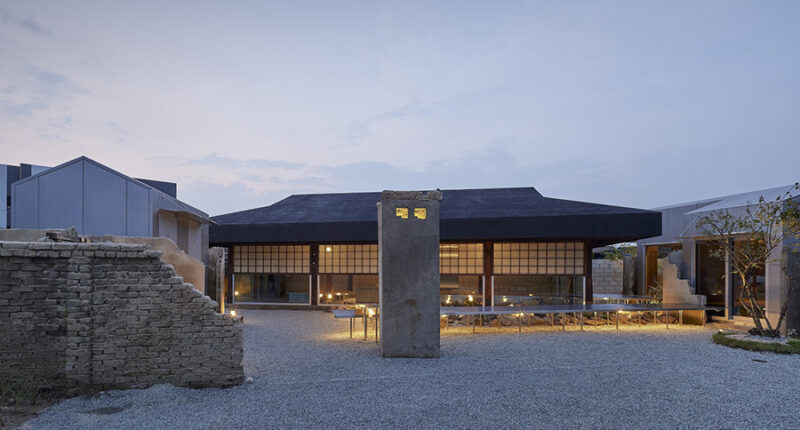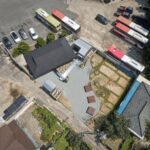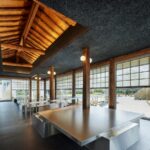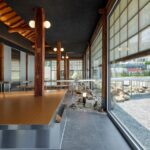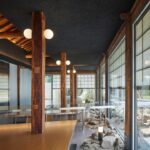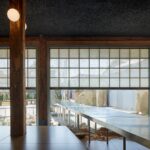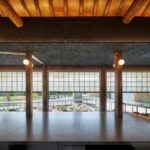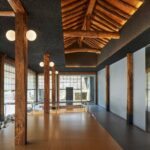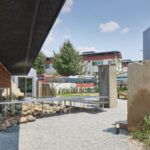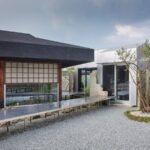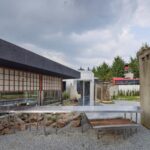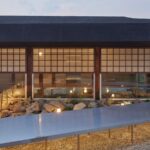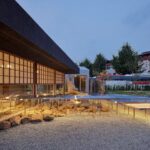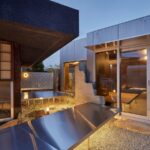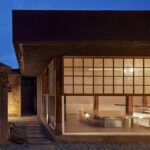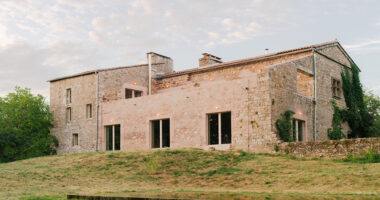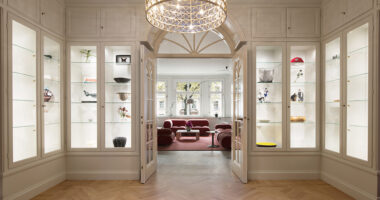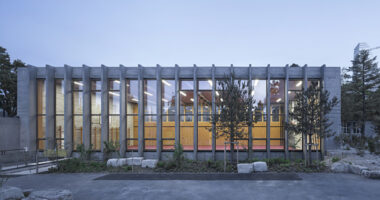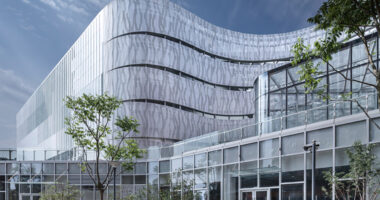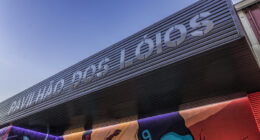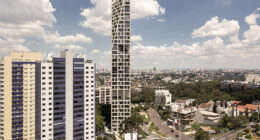Nestled in Palbok-dong, Jeonju, Korea, Joomak Restaurant stands as a testament to adaptive reuse and urban regeneration efforts led by NOMAL architecture firm. As part of the ‘MBC Empty House 3’ initiative, Joomak Restaurant embodies the intersection of history, culture, and contemporary design, revitalizing neglected spaces and breathing new life into the community.
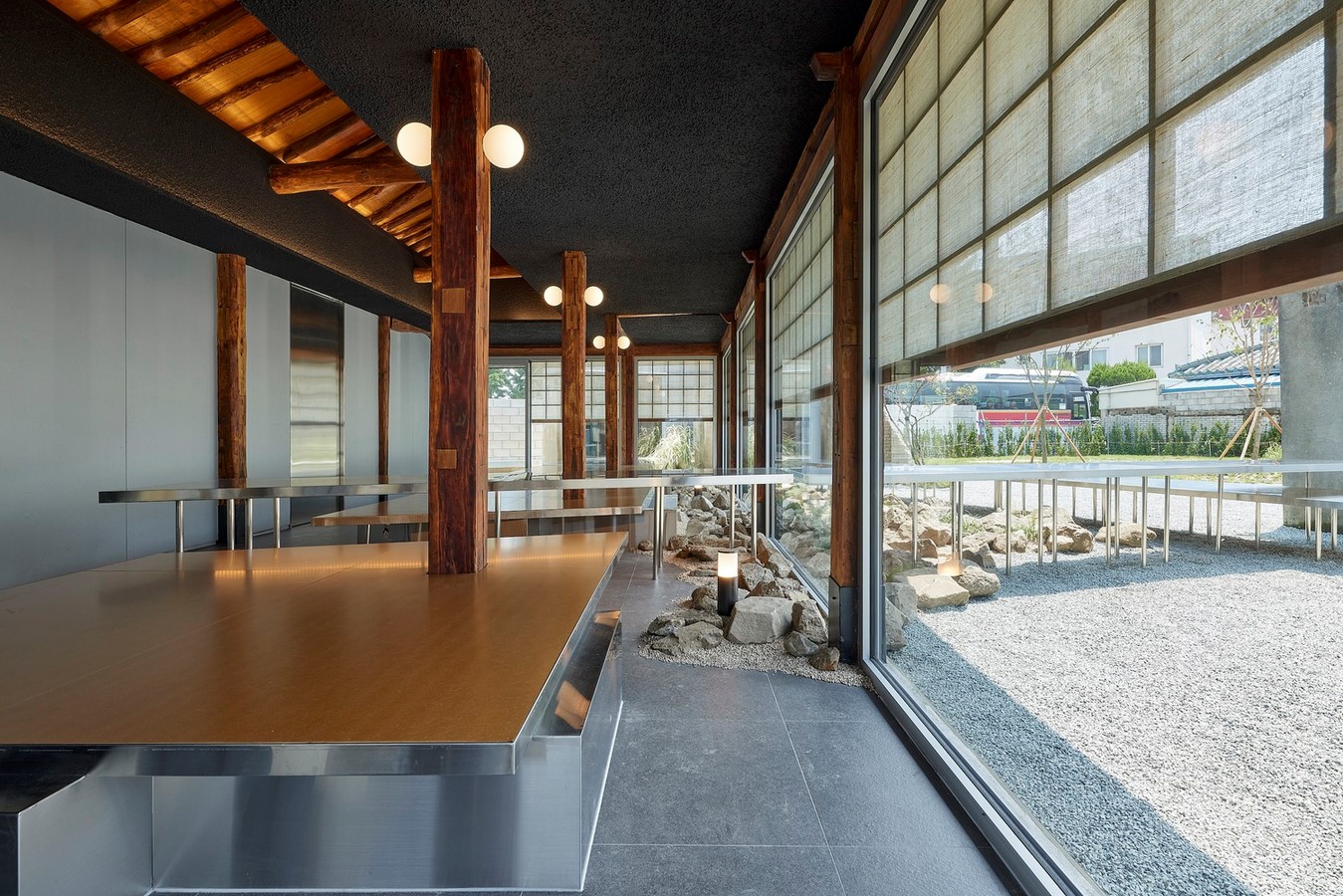
Contextualizing Urban Decline
Palbok-dong, once a bustling industrial hub, witnessed a decline in the manufacturing sector, leaving behind abandoned factories and neglected residential areas. ‘MBC Empty House 3’ aimed to address the blight in Palbok-dong through collaborative efforts between the local government, private companies, and broadcasting stations, with Joomak Restaurant serving as a beacon of hope in this endeavor.
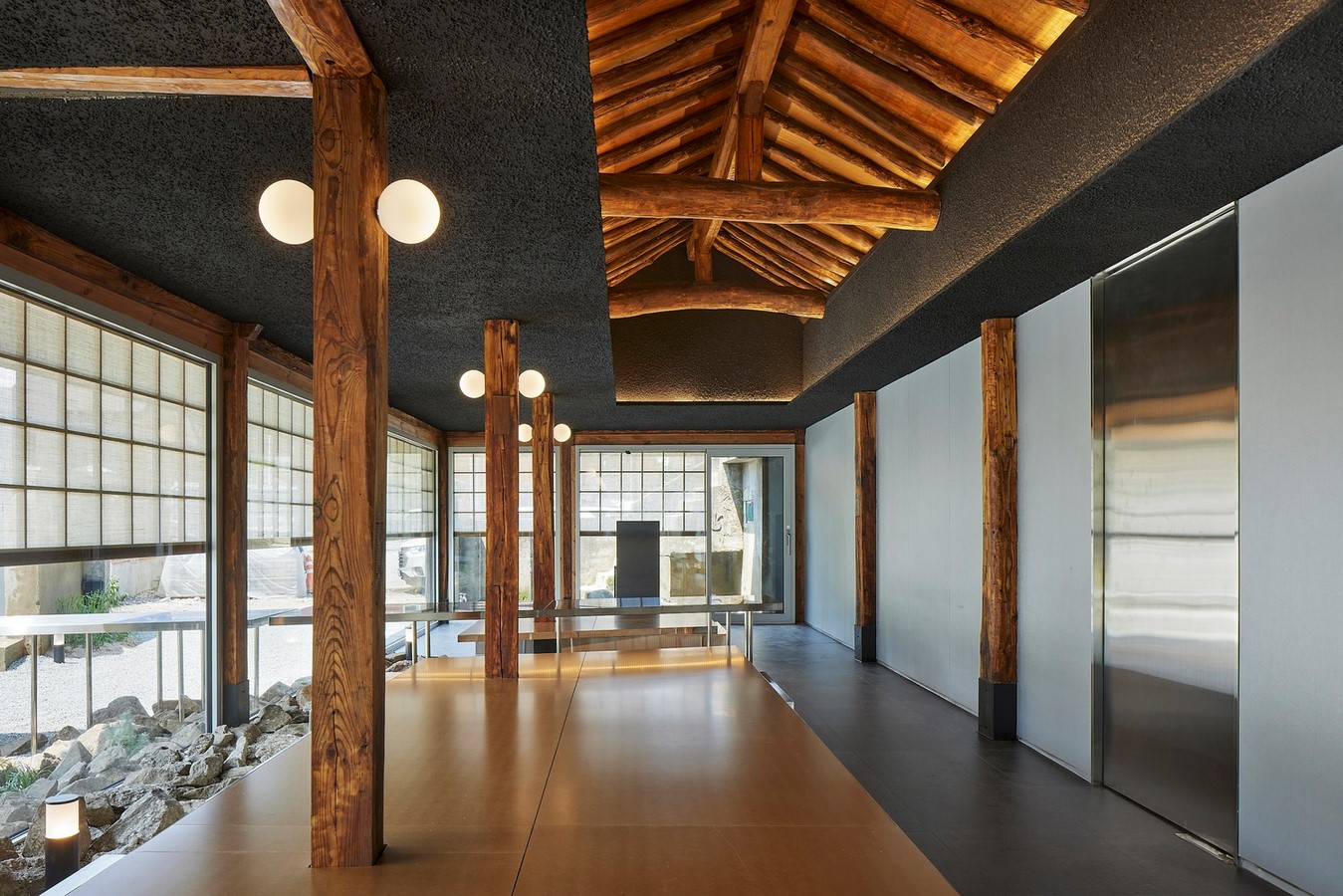
Resurrecting Tradition: The Concept of Joomak
Inspired by the traditional Korean tavern, Joomak Restaurant pays homage to its historical roots while embracing modernity. The concept of Joomak, known for its communal atmosphere and hospitality, guided the design process, blending indoor and outdoor spaces seamlessly. Symbolically, Joomak represents a place of gathering and camaraderie, mirroring its historical counterparts.
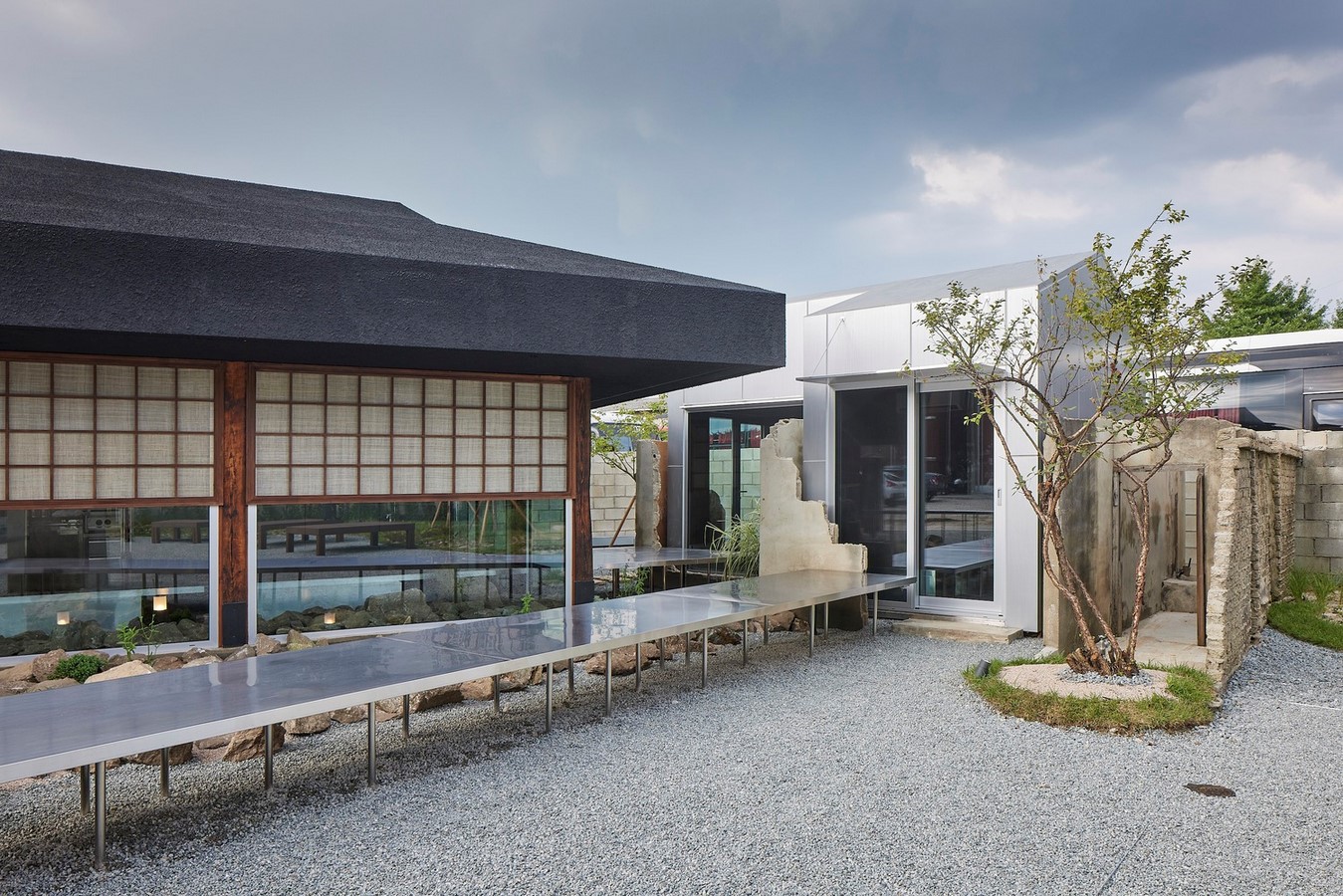
Bridging Past and Present: Architectural Intervention
The architectural intervention at Joomak Restaurant aimed to preserve the existing structures while infusing them with new life. Despite the critical damage to the original buildings, efforts were made to retain traces of their existence, honoring their contribution to the village landscape. Modern materials and construction techniques were employed to ensure structural integrity and longevity.
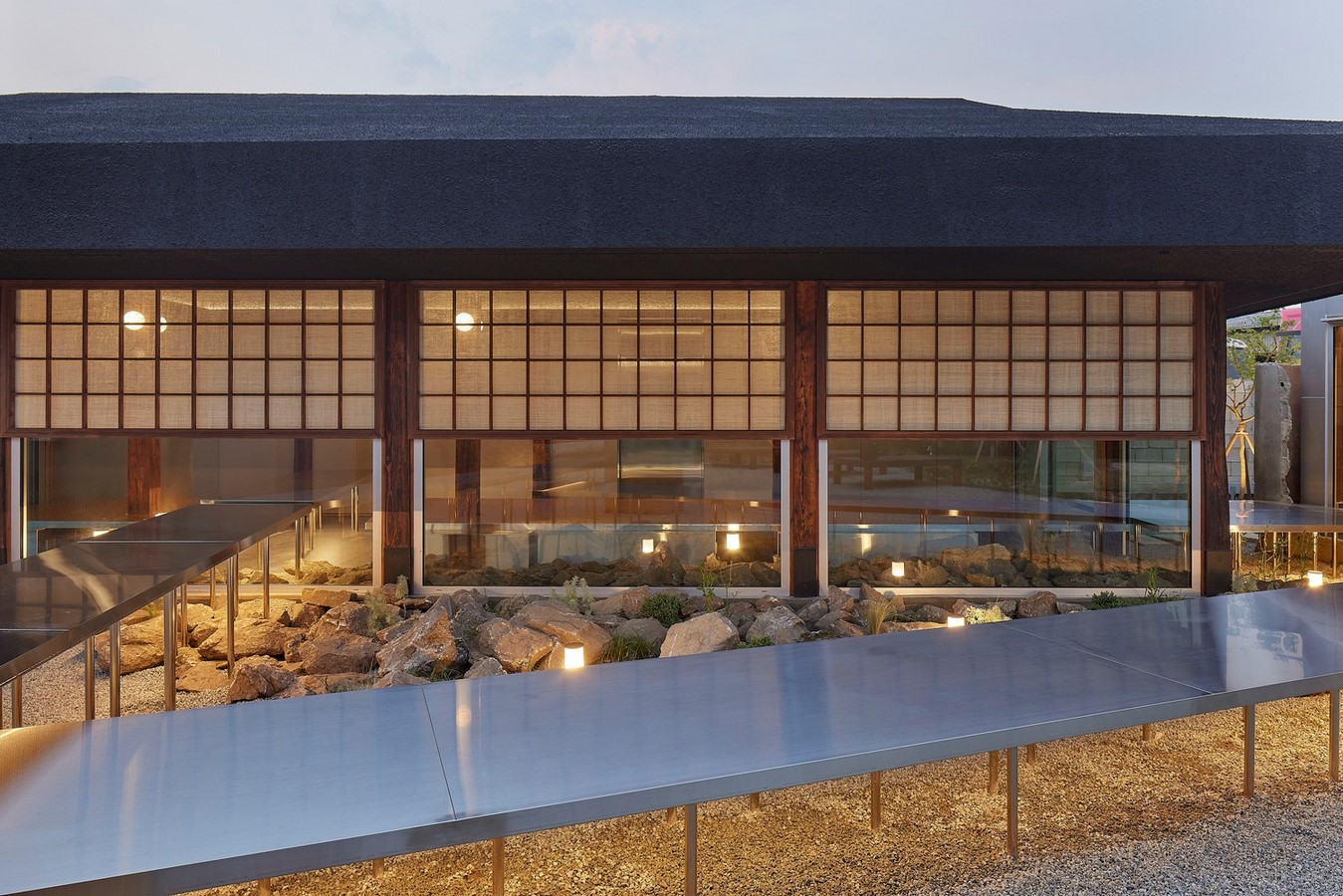
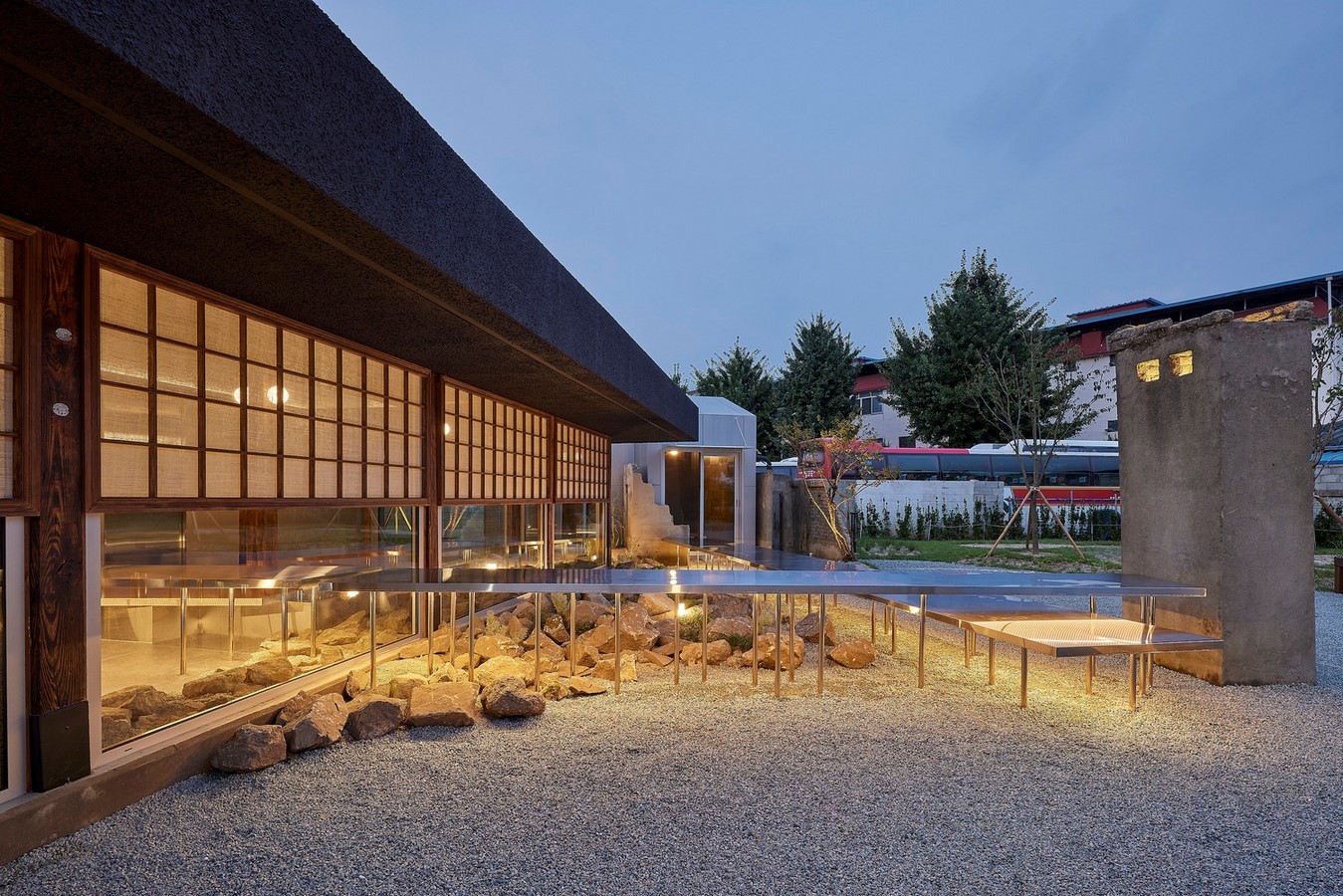
Innovative Solutions: Embracing Prefabrication
Facing challenges with unusable structures, NOMAL adopted an innovative approach by integrating new prefab houses into the existing buildings. This novel method required meticulous planning and coordination between stakeholders but ultimately proved successful, breathing new life into the dilapidated spaces. The result is a harmonious blend of old and new, preserving the character of Palbok-dong while embracing progress.

Looking Towards the Future
The revitalization of Joomak Restaurant marks a pivotal moment in the urban regeneration of Palbok-dong. Moving forward, sustained efforts in operation, management, and community engagement are essential to ensure the long-term success of the initiative. As architects and stakeholders, NOMAL remains committed to fostering a vibrant and inclusive community, where tradition and modernity coexist harmoniously.
